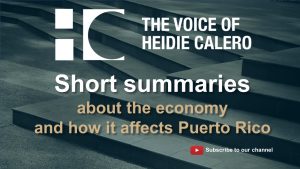
January 2001: The Housing Affair
The pace of home building in Puerto Rico during the 1990`s differs sharply from that of the previous decade. From 1980 to 1990, residential construction activity scarcely grew 3% a year. In the 1990`s, however, housing activity accelerated considerably and its importance in the economy increased. In light of this recent experience, an important economic question emerges: Will this faster growth of the 90`s continue in the years ahead, will it stabilize, or will it slow? Many economic factors affect housing. Among the most important of these factors is demographics – influences such as population growth, changes in the age structure, and changes in the formation of households. Find out how growth in the number of households will impact the demand for housing.







